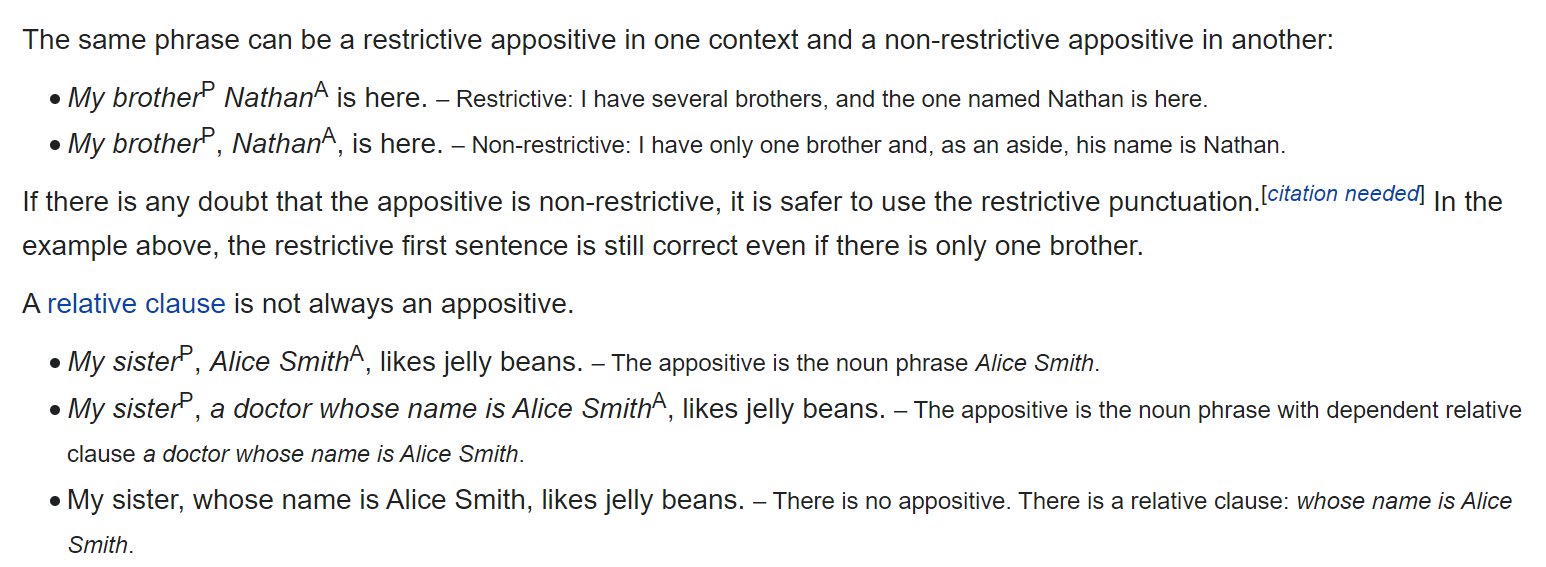Do I need a comma before the word "dies" in the following sentence?:
Prince Philip, husband of the Queen of the United Kingdom Elizabeth II, dies at the age of 99, two months before his 100th birthday.
As far as I understand, here we are dealing with an apposition. Wiki page on apposition says that in English, restrictive appositives are not set off by commas, and non-restrictive appositives are typically set off by commas. But later it says:
So, it looks like "if there is any doubt", it is better not to use comma in my example. But I want to know for sure: if I use comma there, will I be wrong? On one hand, Queen Elizabeth II might have several husbands (that is, she might have been married more than once), so it is restrictive then and comma is not needed; but, on the other hand, we all know that she was married only once and her only husband was Prince Phillip, in which case it is non-restrictive and then comma is needed.

